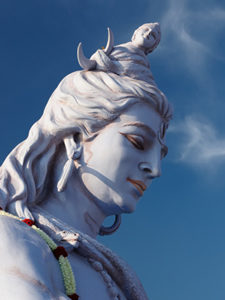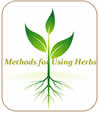Ayurveda The science of Life

Ajwain Seed * Aloe * Andrographis * Angelica * Arjuna * Asafoetida * Ashwagandha * Asparagus (Satavari) * Bacopa * Barberry (Daru Haridra) * Bitter Melon * Black Pepper * Black Seed (Kalonjii) * Acorus Calamus * Camphor * Caralluma * Cardamom * Chanca Piedra * Chrysanthemum * Cilantro * Cinnamon * Clove * Coleus Forskohlii * Cubeb * Cumin * Dandelion Root * Fenugreek * Flax seed * Garcinia Fruit * Garlic * Ginger Root * Gurmar * Henna * Holy Basil * Ivy gourd * Jambul * Jasmine * Long Pepper, Pippali * Lotus * Myrrh * Nard Oil * Neem * Noni * Saffron * Sandalwood Oil * Sesame * Tribulus * Vetiver Oil *
Ayurveda, the ancient medical system of India, is a holistic system that encompasses the healing of the body, mind and spirit through diet, lifestyle and cleansing. Medicinal plants and herbs of India accompany these procedures. The tradition of Ayurveda extends back more than five thousand years and is still widely practiced in present day India. True understanding of this vast body of knowledge is beyond the scope of this website. The basic principles are presented here in hopes that it will spur the reader to pursue deeper knowledge.
The Elements: Space, Air, Fire,Water and Earth
The human body and our world are made up of combinations of the elements, and the physical universe is the interaction of these five elements. Space:The common factor, or Home for all objects in the universe.
- Air: The vital life force, or prana, essential for all life
- Fire: Fire governs digestion, absorption and assimilation, the flowering, ripening and decay of plants. The sun is the central source of heat energy.
- Water: Life sustaining, liquid, cool water maintains electrolyte balance and nourishes plants and animals
- Earth: Solid, dense and hard, Earth is the firm ground that holds all living creatures on the planet, giving them food and shelter.
Tridosas: Vata, Pitta,and Kapha
Tridosas are dynamic principles that govern the body, mind and consciousness. Ancient Ayurveda considered Air and Earth to be mostly passive, and incorporated the three active elements, Air,Fire and Water into the principles of tridosas.
The three doshas represent all physical manifestations in the world, and are related to the three humours that are the foundation of all health and disease. humans being a part of the universe have a combination all three doshas, with the primary dosha type acquired at birth. When all three doshas are in the proper equalibrium within the body and in the external environment, we are in a state of optimal health.
Doshas can be brought into balance by eating the right foods and herbal therapies. When a dosha is in excess it can be reduced by substances that enhance the qualities of the other two doshas. Under the principle of like increases like, herbs with the same energies as the dosha increase those qualities in the body, for instance cold and dry aggravate Vata, heat increases Pita and cold and damp increase Kapha.
Achieving the proper balance of these doshas within each individual is the foundation of Ayurvedic practice and is the path to optimal health.
| Kapha | ||||
|---|---|---|---|---|
| element | deity | color | tastes | time |
| Water | Shiva the destroyer | White | sweet,salty,sour,pungent | morning,late evening |
| moist, cold,wet, heavy,slow, dull, static, smooth, dense and cloudy. Kapha is the substance, weigh and stability of the body, strength, firmness and new growth. water element lubricates joints and forms mucus. | ||||
| Pitta | ||||
|---|---|---|---|---|
| element | deity | color | tastes | time |
| Fire | Brama the creator | Red | sour,bitter,pungent | noon,midnight |
| Moist, hot, fluid, brilliant, sharp, soft, clear, sublte, oily and malodorous. Responsible for heat and digestion, body warmth, catabolic activities. Protects the body from cold | ||||
| Vata | ||||
|---|---|---|---|---|
| element | deity | color | tastes | time |
| Air | Vishnu the preserver | Blue | bitter,astringent,pungent | afternoon,early morning |
| cold, dry, light,subtle, rough, clear, changeable. Hyperactive. Air governs movement and drives and balances the other two doshas. The most powerful and the most likely to cause disease if not balanced | ||||
Ayurvedic Remedies
|
| |||
|---|---|---|---|
 Bulk Herbs |
 Bitters & Syrups |
 Herbal Extracts |
 Herbal Health |
- Ajwain and Pippali for Coughs
- Ashwagandha root tea decoction
- Brahmi Memory and Focus Extract
- Forskolin Extracts
- Gymnema Leaf tea
- Holy Basil Tea
- Trikatu for dieters
- Turmeric and Milk for cough
- Turmeric and yogurt
- Turmeric capsules and oil
Looking for something you can read offline? Join our mailing list and get a free copy of Methods for Using Herbs. This free handbook includes instructions on how to make basic herbal preparations at home. It covers making herbal teas, herb infused oils and balms, tinctures, and more.
- Witkin JM, Li X. . The Bioactivity of Curcumin � an Active Constituent of Turmeric , CNS Neurol Disord Drug Targets., (2013-07-15): Curcumin has been reported to be active in alleviating a host of inflammation-related conditions including multiple sclerosis, rheumatoid arthritis, psoriasis, and others.


